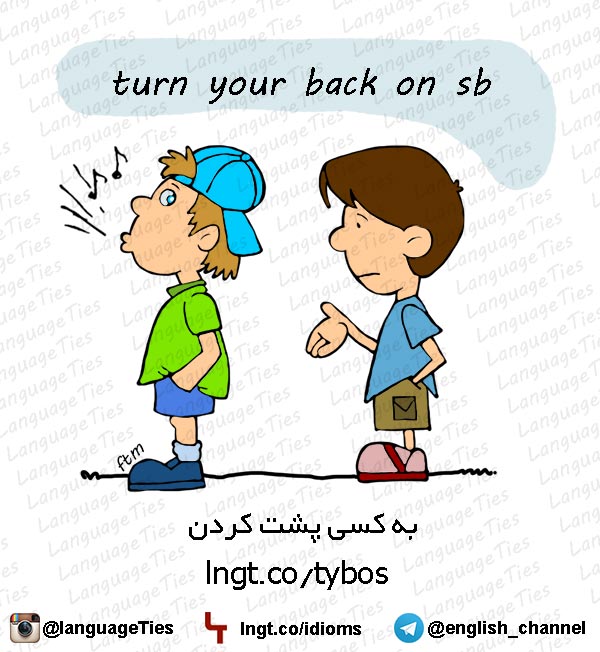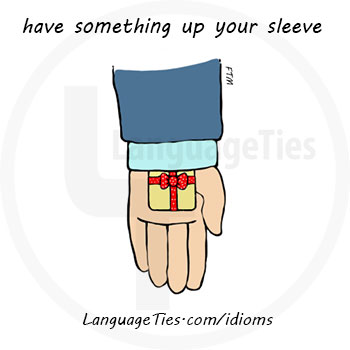vow
a serious promise or decision
She took/made a vow never to lend money to anyone again.
Longman Dictionary of Contemporary English
vow
I. vow1 /vaʊ/ BrE AmE noun [countable]
[Date: 1200-1300; Language: Old French; Origin: vou, from Latin votum; ⇨ ↑vote2]
1. a serious promise ⇨ oath:
Jim made a vow that he would find his wife’s killer.
2. a religious promise that you will do something for God, the church etc:
a monk who had taken a vow of poverty
3. vows [plural]
a) (also marriage/wedding vows) the promises you make during your wedding
b) the promises you make when you become a Catholic priest or ↑nun
• • •
COLLOCATIONS
■ verbs
▪ make a vow I made a vow never to go near the place again.
▪ take a vow (=make a vow at a formal ceremony) Priests have to take a vow of obedience to the Catholic Church.
▪ keep a vow (=do as you promised) She kept her vow not to tell anyone about their affair.
▪ break a vow (=fail to do as you promised) She accused him of breaking his marriage vows.
▪ exchange vows (=make promises to each other as part of a wedding ceremony) They wanted to exchange vows before their family and friends.
▪ renew your vows (=have a second wedding ceremony to repeat your promises) Fifty couples celebrated their golden weddings and renewed their vows at a cathedral service in Chicago.
■ ADJECTIVES/NOUN + vow
▪ a solemn vow (=a very serious vow, which you must keep) He made a solemn vow that he would do everything he could to help her.
▪ marriage/wedding vows She wrote her own marriage vows.
▪ a holy/sacred vow When we get married in church we are making sacred vows.
■ phrases
▪ a vow of silence/poverty/celibacy etc People close to him have finally broken their vow of silence.
▪ be bound by a vow (=to have promised seriously to do something) She told him she was bound by a vow not to tell any other person.
• • •
THESAURUS
▪ promise a statement that you will definitely do or provide something, which may not be reliable: ‘I’ll call you tomorrow.’ ‘Is that a promise?’ | Politicians are always making promises.
▪ pledge a public or official promise to do a particular thing in the future: The Government has fulfilled at least 50% of its election pledges. | We have received pledges of help from various organizations.
▪ vow a very serious promise to do something or not to do something that you choose to make: He made a vow never to drink alcohol again. | your marriage vows
▪ oath a formal promise, especially one that someone makes in a court of law: Witnesses swear a solemn oath to tell the truth. | Public officials must take an oath to support the US Constitution.
▪ undertaking a serious or public promise to do something, especially something difficult which needs a lot of effort or money: The police have given an undertaking to reduce street crime in the city centre. | He was made to sign a written undertaking that he would not go within a mile of her house.
▪ assurance a promise that something will happen or is true, made so that someone is less worried or more confident: You have my assurance that it won’t happen again. | The manager gave me his personal assurance that the goods would be delivered today.
▪ guarantee a very definite promise that something will happen. A guarantee is also a formal written promise by a company to repair or replace a product free if it has a fault within a fixed period of time.: With any diet, there’s no guarantee of success. | I’m afraid I can’t give you a 100% guarantee. | Is the camera still under guarantee (=within the period during which it can be repaired or replaced free)?
Oxford Advanced Learner's Dictionary
vow
vow [vow vows vowed vowing] noun, verb [vaʊ] [vaʊ]
noun
a formal and serious promise, especially a religious one, to do sth
• to make/take a vow
• to break/keep a vow
• to break your marriage vows
• Nuns take a vow of chastity.
Word Origin:
Middle English: from Old French vou, from Latin votum ‘a vow, wish’, from vovere ‘to vow’; the verb is from Old French vouer.
Collocations:
Marriage and divorce
Romance
fall/be (madly/deeply/hopelessly) in love (with sb)
be/believe in/fall in love at first sight
be/find true love/the love of your life
suffer (from) (the pains/pangs of) unrequited love
have/feel/show/express great/deep/genuine affection for sb/sth
meet/marry your husband/wife/partner/fiancé/fiancée/boyfriend/girlfriend
have/go on a (blind) date
be going out with/ (especially NAmE) dating a guy/girl/boy/man/woman
move in with/live with your boyfriend/girlfriend/partner
Weddings
get/be engaged/married/divorced
arrange/plan a wedding
have a big wedding/a honeymoon/a happy marriage
have/enter into an arranged marriage
call off/cancel/postpone your wedding
invite sb to/go to/attend a wedding/a wedding ceremony/a wedding reception
conduct/perform a wedding ceremony
exchange rings/wedding vows/marriage vows
congratulate/toast/raise a glass to the happy couple
be/go on honeymoon (with your wife/husband)
celebrate your first (wedding) anniversary
Separation and divorce
be unfaithful to/ (informal) cheat on your husband/wife/partner/fiancé/fiancée/boyfriend/girlfriend
have an affair (with sb)
break off/end an engagement/a relationship
break up with/split up with/ (informal) dump your boyfriend/girlfriend
separate from/be separated from/leave/divorce your husband/wife
annul/dissolve a marriage
apply for/ask for/go through/get a divorce
get/gain/be awarded/have/lose custody of the children
pay alimony/child support (to your ex-wife/husband)
Example Bank:
• He took a lifelong vow of celibacy.
• Nothing will persuade me to break this vow.
• She decided to leave the convent before taking her final vows.
• She kept her vow of silence until she died.
• The couple exchanged vows at the altar.
• a vow of poverty
• As a priest he had taken a vow of celibacy.
• She made a vow never to speak to him again.
• She would not be unfaithful to her marriage vows.
• The monks take a vow of silence.
Cambridge Advanced Learner's Dictionary
Cambridge Advanced Learner's Dictionary - 4th Edition
vow / vaʊ / noun [ C ]
C2 a serious promise or decision:
[ + to infinitive ] She took/made a vow never to lend money to anyone again.
Collins COBUILD Advanced Learner’s English Dictionary
vow
[va͟ʊ]
vows, vowing, vowed
1) VERB If you vow to do something, you make a serious promise or decision that you will do it.
[V to-inf] While many models vow to go back to college, few do...
[V that] I solemnly vowed that someday I would return to live in Europe...
[V with quote] `I'll kill him,' she vowed...
[V n] They have vowed a quick and decisive response.
2) N-COUNT: oft N to-inf, N that A vow is a serious promise or decision to do a particular thing.
I made a silent vow to be more careful in the future...
I had to admire David's vow that he would leave the programme.
Syn:
resolution
3) N-COUNT: usu pl, with supp Vows are a particular set of serious promises, such as the promises two people make when they are getting married.
I took my marriage vows and kept them.
...a nun who had taken final vows...
He had broken his vow of poverty.
Syn:
oath
Merriam-Webster's Advanced Learner's Dictionary
1vow /ˈvaʊ/ noun, pl vows [count] : a serious promise to do something or to behave in a certain way
• The monks take a vow of silence/chastity/poverty.
• marriage/wedding vows
• The bride and groom exchanged vows.
• The mayor made a vow to reduce crime.


